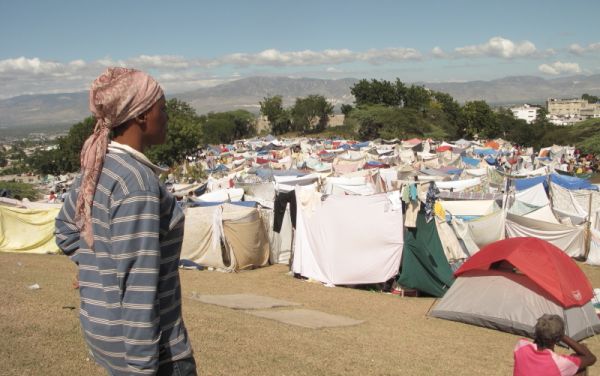
More than a year after the devastating earthquake that struck Haiti in January 2010, the number of displaced people living in camps has declined. From 1.5 million people packed into the camps at the peak of the crisis, the figure has fallen to 680,000, according to statistics released by the International Organization for Migration. Encouraging as this sounds, however, it’s not all rosy: more than 233,000 people in camps face the threat of eviction or have already been evicted by landowners.
Under Haitian law and international law, landowners don’t have the right to evict the displaced. But since June 2010, some have been doing just that: sometimes at night, and sometimes using force. An Oxfam survey of families evicted from Port-au-Prince has found that their situations have worsened, as they’ve lost access to the clean water and sanitation provided at the camps, and have been unable to pay rent or support themselves. Many homes are too hazardous to return to after the earthquake, while 250,000 were destroyed altogether.
In recent months, Oxfam has participated in more than 15 negotiations between landowners and displaced people, but the best result we’ve been able to achieve is postponing some of the evictions. Haitian president Michel Martelly’s newly elected government needs to come up with a return and resettlement strategy that takes these forced evictions into consideration, as well as the rights of the displaced and the landowners.
Learn more
Read an article by Oxfam’s Amélie Gauthier about Haiti’s forced evictions
Find out more about Oxfam’s work in Haiti